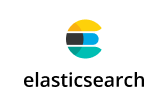MySQL is a relational DBMS, which is widely used in various fields. MySQL is characterized by simplicity, accessibility, good performance and security. It also has extensive support from various services. MySQL can easily integrate with programs in various programming languages through an API interface, giving users easy access to the database management system.
MySQL database management system is most often used for projects in the following areas:
- Content Management System (CMS)
A large number of content management system engines are based on MySQL and PHP/Apache. The most famous of them WordPress, which has a lot of functions, provides interaction with MySQL.
On websites, MySQL helps to track registration and store user data. To administer websites, a "bundle" of PHP and MySQL is often used. MySQL allows you to store long text in the database without loss of performance, allows you to perform full-text indexing of text fields and organize searches.
- Corporate systems, Groupware, ERP/CRM applications
It is not uncommon for companies to be dissatisfied with off-the-shelf enterprise-level solutions such as resource planning systems, groupware, and customer relationship management systems. Reasons for this may include the high cost of enterprise solutions, lack of necessary highly specialized functionality, and the complexity and redundancy of generic solutions. As a result, companies take it upon themselves to develop their own solutions for such systems and often choose MySQL for working with data.
Most forum management systems not written in ASP currently use MySQL. For example, phpBB, yaBB, Invision Power Board, etc.
MySQL is used by both corporations and small organizations for a variety of data management tasks. MySQL is freely distributed, reliable and fast. For web development purposes, MySQL will be a good option.










